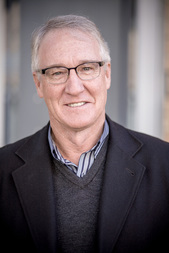 Professor Deon Rossouw says there are important lessons that can be learned from Nkandlagate. Professor Deon Rossouw says there are important lessons that can be learned from Nkandlagate. As allegations of fraud and corruption rise, both public and private sector organisations need to know how to act when accused of unethical conduct. Important lessons on how to handle a scandal can be learned from Nkandlagate. “The Nkandla issue was always a moral one, not a legal one, as the Public Protector’s report makes clear,” says Professor Deon Rossouw, CEO of the Ethics Institute of South Africa (EthicsSA). “The Public Protector’s finding was that the President breached the Executive Ethics Code, not that a law was broken. The government’s general approach, however, was to attempt to focus on the legality of what had been done.” Act quickly, and separate the legal from the ethical Allegations of both illegal and unethical conduct should be dealt with quickly. The alleged individual or organisation should without delay admit the moral responsibility or provide a reason for not taking moral responsibility. When faced with tricky moral issues, many seem to adopt delaying tactics in the hope that the issues will disappear. In fact, as we have seen with Nkandlagate, avoidance actually serves to heighten suspicion and fuels speculation. Those accused should distance themselves from any investigations It is absolutely vital that the person(s) accused of wrong-doing ensure that there is no perceived interference in the investigation process. “This principle was clearly not followed during Nkandlagate, where those investigating were members of the government or the leading party,” says Professor Rossouw. “If further investigations were required, President Zuma could have removed himself from a difficult position by appointing a trusted third party to investigate.” He adds that President Zuma’s involvement was initially forced on him by the shortcomings of the Executive Members’ Ethics Act. The Act requires that the Public Protector’s report is submitted to the President, with no provision made for the procedure when the President is the subject of the report. “The necessary amendment to fix this problem in the Act has been gathering dust since 2011, and we see the consequences before us,” he says. “Facing the moral issue head on would have offered the President and government a resolution with far less reputational damage,” Professor Rossouw believes. “We should not forget that Nixon’s fall was primarily linked to his involvement in the investigation and cover-up of Watergate, not the original act.” ENDS MEDIA CONTACT: Juanita Vorster, 079 523 8374, [email protected], www.atthatpoint.co.za For more information on EthicsSA please visit: Website: www.ethicssa.org LinkedIn: Ethics Institute of South Africa Facebook: Ethics Institute of South Africa |
Welcome to the newsroom of The Ethics Institute. For media releases prior to August 2014 please click here.
Archives
August 2017
Categories
All
|

 RSS Feed
RSS Feed